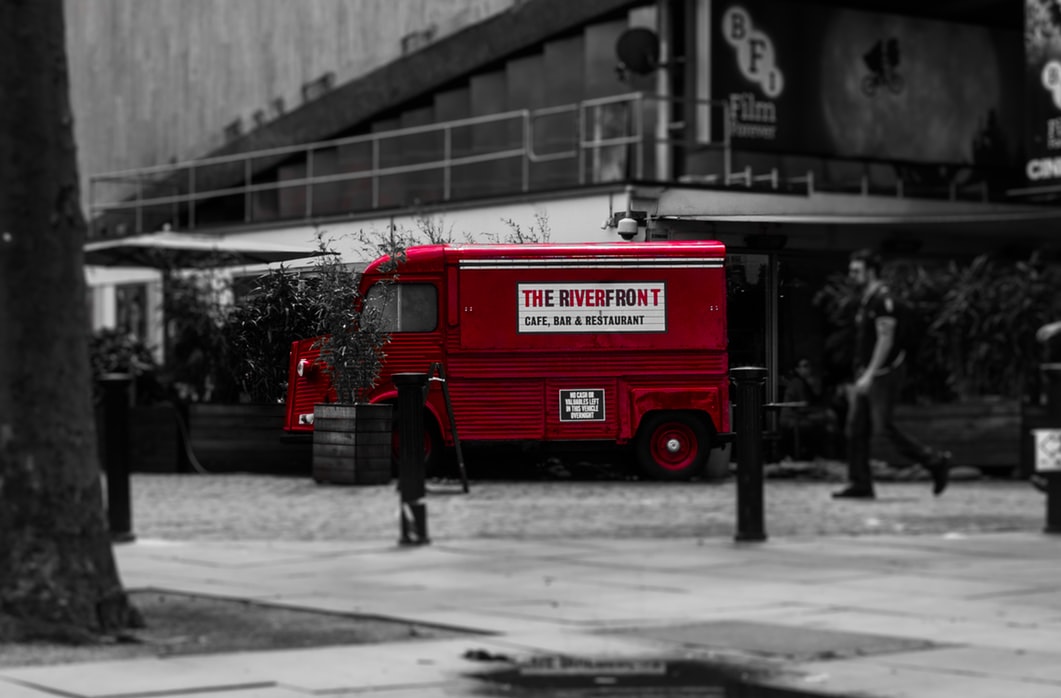Food truck fire suppression systems have been a hot topic ever since a disastrous fire and explosion struck a food truck in Philadelphia back in July of 2014.
The mother and daughter team running the truck were killed, and at least 10 other bystanders were injured, some of them critically.
That explosion prompted the National Fire Protection Association to write a new chapter for NFPA 96 called Standard for Ventilation Control and Fire Protection of Commercial Cooking Operations.
The new standards were created specifically for food truck vendors.
One of the requirements of the new standards is that your food truck must contain a fire suppression system.
If you operate a food truck or are planning to, here are ten must-knows about food truck fire suppression systems, along with some approximate pricing to help you keep your food truck business fire-free and operating long into the future.
1- Food Trucks Need Fire Suppression Systems
Food trucks are fun to own and bring people lots of joy, but they are also rolling fire hazards.
All that cooking equipment combined with cooking oils, open flames, and electrical connections can cause a fire to quickly burn out of control.
A fire suppression system will activate at the slightest hint of a fire, keeping the food truck from sustaining damage and staff and customers safe.
2- Fire Can Break Out at Any Time
Not only are you at risk for fire while you’re in active cooking operation, but just rolling around town could cause oil spills, gas leaks, propane tank punctures, and other hazards.
Make sure everything is bolted down firmly before operating your food truck.
While you are actively cooking, the fire suppression system in your food truck will cut off the fuel supply while simultaneously dousing any fire with wet chemical solutions, extinguishing the fire fast.
3- Fire Can Quickly Burn Out of Control
As the aforementioned food truck explosion shows, any blaze can cause untold damage and loss of life.
The Philadelphia accident was caused by gas from a leaking propane tank that ignited. But anything can cause a fire in a food truck, even a little spilled oil that catches a spark.
In addition to having a fire suppression system, staff should be trained never to throw water on grease fires, for instance, as mistakes like those can also cause uncontrollable blazes that even a fire suppression system might have trouble putting out.
4- Like Restaurant Fires, Customers Can Be Harmed
A fire suppression system decreases your liability as far as customer safety is concerned.
If fire and the resulting smoke does harm a customer, you could be sued, which could spell the end of your dreams of being a food truck operator.
A quality fire suppression system will extinguish flames before they have a chance to reach your staff or customers, and smoke will be minimized simultaneously, keeping everyone inside and around the truck safe at all times.
5- Regulators are Cracking Down
The NFPA is very serious about fire safety, especially in light of the 2014 food truck explosion.
Follow the NFPA 96 guidelines carefully, which includes having an automatic fire suppression system and Class K fire extinguishers in your food truck.
Be ready for inspections and be sure all staff operating the truck know how to use the equipment in case a fire does ignite.
6- Fire Suppression Systems Require Regular Inspections
Your food truck will be inspected, so ensure that you have the proper cooking equipment and that all hazardous materials are correctly stored.
Your fire suppression system should also be regularly checked and maintained so that all components are working properly in case they are needed.
7- Food Truck Owners Should Practice Fire Drills
It might be a good idea to hold the occasional fire drill.
Practice evacuating the truck and operating the fire extinguishers while allowing your food truck fire suppression equipment to do its job.
This type of preparation will ensure that you react calmly in the face of danger as opposed to panicking, which is when dangerous and deadly accidents can occur.
Preparation is key to keeping your food truck and everyone in the vicinity free from harm.
8- Fire Suppression Systems Are Not One-Size-Fits-All
As with most things, you get what you pay for when buying a food truck fire suppression system.
Ensure that you get the proper size for the truck you have.
Like restaurants, fire suppression equipment is designed to be installed overhead of your cooking stoves and other heat-based appliances.
Work with a reputable team to ensure you get quality equipment and reliable installation.
9- Food Truck Fire Suppression Can Be Affordable
You can expect to pay as little as $2K and as much as $4K or more for a complete food truck hood and fire suppression system.
That may not include installation.
However, you can get an excellent deal by working with a retailer and installer like Nationwide Fire Protection corp..
10- A Free Quote is Only a Phone Call Away
If you have a food truck or trailer business or you are thinking of starting one, and you find yourself in the market for a food truck fire suppression installation, call now to discuss your ideal model and size.
Simply tell us about your food truck business and the dimensions of your food truck, and we can recommend the perfect fire suppression equipment for your needs. You are guaranteed quality fire safety equipment, a reliable installation, and rapid response to any outbreak of fire.
Call now to speak to one of our representatives in Denver, Colorado, and we’ll provide you with a free and fair quote.

